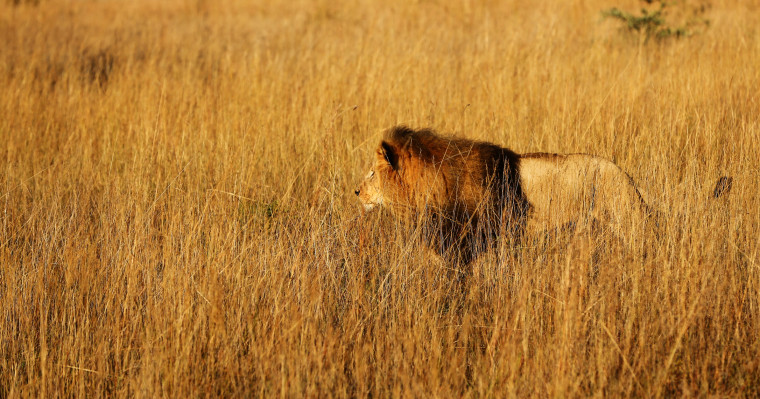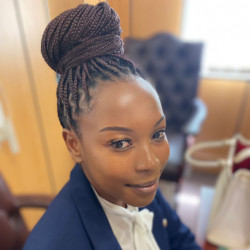Hearing Local Voices is Key to Wildlife Protection
In this blog, Animal Law LLM Candidate, Tanyaradzwa Muzenda, reflects on why participation of indigenous and local communities from her home country of Zimbabwe in decision-making is critical to protecting wild animals.
Open gallery

iStockphoto
Zimbabwe is a haven to large herbivores, big cats, and a variety of bird species. A visit to the pristine savannah lands will definitely galvanize one’s perspective on the need to protect these extraordinary non-human animals. They are beautiful, they have their own unique communities, they balance their own ecosystems, they are our national pride, and they represent our history as a people. We name our totems after them: muera shumba (the lion), vana nzou (the elephant), vana muera gudo (the primates).
Due to its rich diversity of wild animals, Zimbabwe has played a critical role at this year’s Convention of the Parties at CITES, which stands for the Convention on International Trade in Endangered Species of Wild Fauna and Flora. CITES is an agreement between States or Governments which ensures that the international trade of wild animals and plants does not threaten the species’ survival. In simple terms, CITES is there to ensure that our children and children’s children do not grow into a world where the only elephant that exists is in a zoo, a book or a soundtrack of a movie. Zimbabwe is a part of this Convention and its decisions are thus legally binding on Zimbabwe. The Zimbabwe Parks and Wildlife Authority (“ZIMPARKS”) serves as the primary implementing authority for CITES in Zimbabwe.
At the CITES conference just wrapping up in Panama, Zimbabwe proposed that indigenous peoples and local communities (IPLCs) should be directly engaged in CITES decision-making. In this, Zimbabwe is not wrong. Public participation, including the robust participation of IPLCs, is critical for meaningful wildlife protection. But the route to public participation begins with ZIMPARKS, and it starts with the engagement of the public and IPLCs at home, prior to CITES meetings. We should be engaged in decisions about our heritage and our future.
In fact, public participation is required by law. The Constitution of Zimbabwe mandates the Parliament of Zimbabwe to protect the Constitution and democratic governance in Zimbabwe, to ensure that the provisions of the Constitution are upheld, and that the State and all institutions at every level are accountable to the people. Our Constitution provides that every person has the right to have the environment protected for the benefit of present and future generations and there must be legislation in place which promotes conservation.
The concept of public participation is to enable the people access to information, including information on CITES proposals, to scrutinize administrative decisions, and to provide input. There are fundamental consequences when ZIMPARKS fails to consult the public regarding its positions and decisions. For example, ZIMPARKS has been pushing for ivory trade on the basis that it is what Zimbabweans want, whereas it is unclear the extent to which ZIMPARKS consulted IPLCs or other Zimbabweans.
The role of wild animals in our heritage and our constitutional rights means that the people of Zimbabwe must be allowed to participate when decisions that implicate these stunning non-human animals are made. This is especially so when wild animals are likely to be traded and end up in a cage or a zoo somewhere on the other side of the world, or when an elephant’s tusk is sold without the public knowing where the proceeds are going, or whether the public supports the trade in the first place. While the world focuses on the future of wildlife, no time can be better to raise awareness as to the importance of public participation to wild animal protection.


The Center for Animal Law Studies (CALS) was founded in 2008 with a mission to educate the next generation of animal law advocates and advance animal protection through the law. With vision and bold risk-taking, CALS has since developed into a world-renowned animal law epicenter. CALS’ Alumni-in-Action from over 20 countries are making a difference for animals around the world. CALS is a nonprofit organization that is funded through donations and grants.
More Center for Animal Law Studies Stories
Center for Animal Law Studies is located in Wood Hall on the Law Campus.
MSC: 51
email cals@lclark.edu
voice 503-768-6960
Center for Animal Law Studies
Lewis & Clark Law School
10101 S. Terwilliger Boulevard MSC 51
Portland OR 97219

